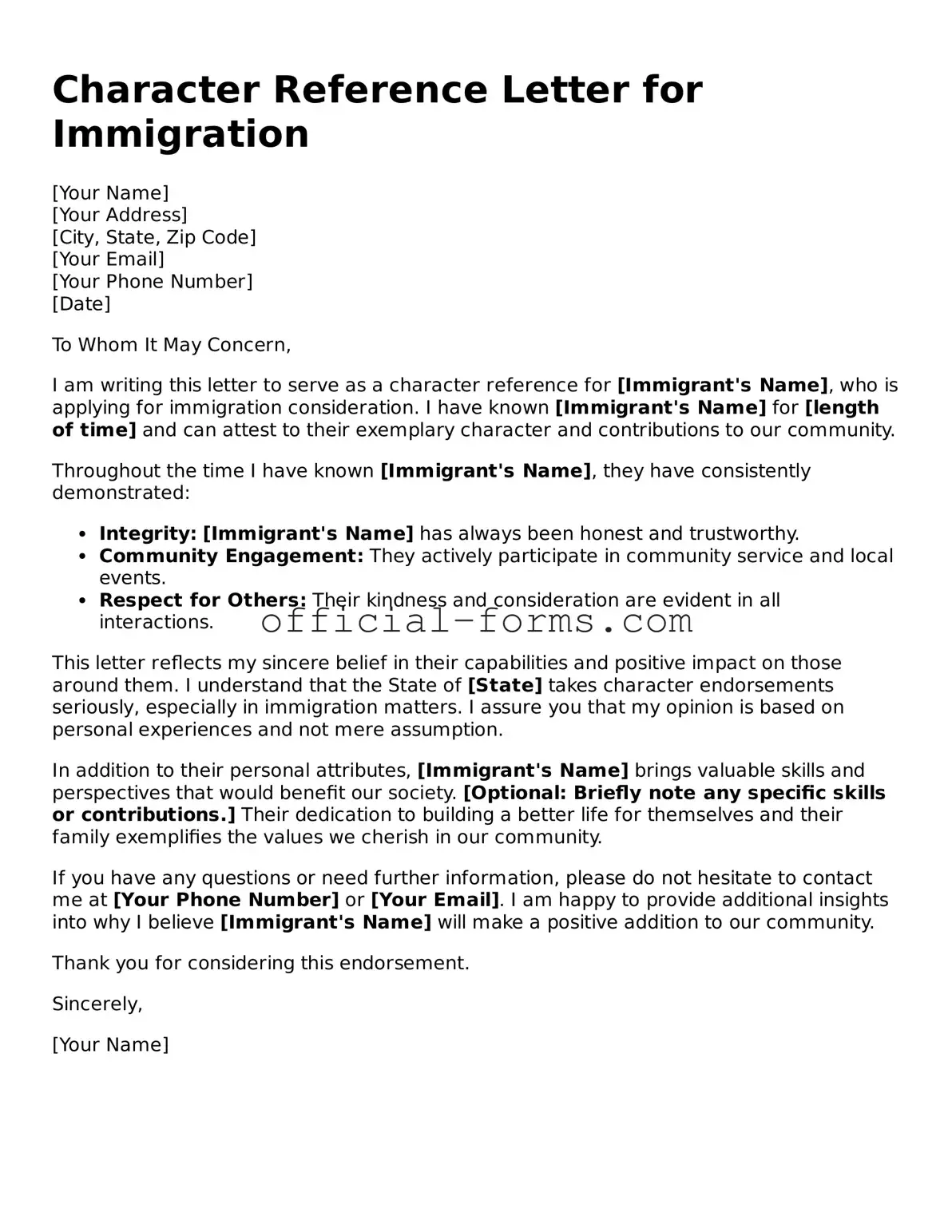Attorney-Verified Character Reference Letter for Immigration Template
The Character Reference Letter for Immigration is a crucial document that supports an individual's immigration application by providing personal insights into their character and contributions. This letter can significantly influence the decision-making process of immigration authorities. Crafting a compelling reference can enhance an applicant's chances of success.
Open My Character Reference Letter for Immigration Now

Attorney-Verified Character Reference Letter for Immigration Template
Open My Character Reference Letter for Immigration Now
Don’t leave your form incomplete
Finish Character Reference Letter for Immigration online quickly from start to download.
Open My Character Reference Letter for Immigration Now
or
➤ PDF
